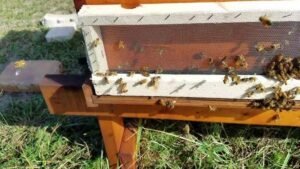Market Size
Data Bridge Market Research analyzes that the herbal tea market which was USD 3,588.13 million in 2022, is expected to reach USD 4,616.42 million by 2030. And is expected to undergo a CAGR of 3.20% during the forecast period of 2023 to 2030. “Green tea” dominate the raw material segment of the herbal tea market because green herbal tea is believed to be healthie. And more acceptable for young people in the market, which is why market demand for green herbal tea is increasing.
For more information, visit https://www.databridgemarketresearch.com/reports/global-herbal-tea-market
Market Share
North America and Europe dominate the market, accounting for the largest shares due to high consumer awareness and the presence of established market players. The Asia-Pacific region is also emerging as a significant market, driven by the increasing adoption of healthy lifestyles and the traditional consumption of herbal beverages in countries like China and India.
Market Trends
Several trends are shaping the herbal tea market. One prominent trend is the increasing demand for organic and natural products. Consumers are becoming more health-conscious and prefer products free from artificial additives, pesticides, and genetically modified organisms (GMOs). This trend is driving the demand for organic herbal teas, with manufacturers increasingly offering certified organic products to meet consumer expectations.
The rise of e-commerce and online retail is also impacting the herbal tea market. Consumers are increasingly purchasing herbal teas online due to the convenience, variety, and availability of detailed product information. Online platforms provide an opportunity for smaller brands to reach a wider audience and for established brands to expand their customer base.
Market Demand
One of the primary drivers is the increasing health consciousness among consumers. Offering various health benefits such as detoxification, weight management, and stress relief. The rising prevalence of lifestyle-related health issues such as obesity, diabetes, and hypertension. Prompting consumers to seek healthier beverage options, boosting the demand for herbal teas.
The growing trend towards natural and organic products is also driving demand. Consumers are increasingly aware of the potential health risks. Associated with synthetic ingredients and are opting for natural and organic alternatives. Herbal teas, with their natural ingredients and health benefits, are becoming a preferred choice for health-conscious consumers.
The increasing popularity of wellness trends and holistic health practices is further contributing to market demand. Consumers are adopting holistic approaches to health and well-being. Incorporating practices such as yoga, meditation, and herbal tea consumption into their daily routines. This trend is driving the demand for herbal teas that promote relaxation, detoxification, and overall wellness.
Market Growth
North America currently holds the largest market share, driven by high consumer awareness. Established market players, and the popularity of health and wellness trends. The United States, in particular, is a key market due to the growing demand for natural and organic products.
Factors such as increasing disposable incomes, urbanization, and the rising popularity of healthy beverages are driving market growth in this region. Countries like China, India, and Japan are major contributors to this growth, with a strong tradition of herbal tea consumption and a growing middle-class population.
Europe is also experiencing significant growth, with countries like Germany, the UK, and France leading the market. The region’s strong focus on sustainability and environmental consciousness is driving demand for organic and sustainably sourced herbal teas. The growing trend towards wellness and natural products is also contributing to market expansion in Europe.
Factors Driving Growth
Several factors are driving the growth of the herbal tea market. One of the primary factors is the increasing consumer awareness of the health benefits associated with herbal tea consumption.
The rising prevalence of lifestyle-related health issues is also driving market growth. Conditions such as obesity, diabetes, and hypertension are prompting consumers to seek healthier beverage options. Herbal teas, with their natural ingredients and health benefits, offer a healthier alternative to sugary and caffeinated drinks, driving their demand.
The growing trend towards natural and organic products is another significant growth driver. Consumers are becoming more conscious of the ingredients in their food and beverages. And are seeking products free from artificial additives, pesticides, and GMOs. This trend is driving the demand for organic herbal teas, with manufacturers increasingly offering certified organic products to meet consumer expectations.
Technological advancements and innovations in product formulations are also contributing to market growth. Manufacturers are developing new and innovative herbal tea blends, incorporating functional ingredients that offer specific health benefits. These innovations are attracting health-conscious consumers and driving market demand.
The increasing popularity of wellness trends and holistic health practices is further fueling market growth. Consumers are adopting holistic approaches to health and well-being, incorporating practices such as yoga, meditation, and herbal tea consumption into their daily routines. This trend is driving the demand for herbal teas that promote relaxation, detoxification, and overall wellness.





Эта статья для ознакомления предлагает читателям общее представление об актуальной теме. Мы стремимся представить ключевые факты и идеи, которые помогут читателям получить представление о предмете и решить, стоит ли углубляться в изучение.
Получить дополнительные сведения – https://vyvod-iz-zapoya-1.ru/